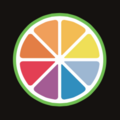In computing, cross-platform software is computer software that is designed to work in several computing platforms. Some cross-platform software requires a separate build for each platform, but some can be directly run on any platform without special preparation, being written in an interpreted language or compiled to portable bytecode for which the interpreters or run-time packages are common or standard components of all supported platforms.
Csound is a domain-specific computer programming language for audio programming. It is called Csound because it is written in C, as opposed to some of its predecessors.
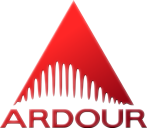
Ardour is a hard disk recorder and digital audio workstation application that runs on Linux, macOS, FreeBSD and Microsoft Windows. Its primary author is Paul Davis, who was also responsible for the JACK Audio Connection Kit. It is intended as a digital audio workstation suitable for professional use.

wxWidgets is a widget toolkit and tools library for creating graphical user interfaces (GUIs) for cross-platform applications. wxWidgets enables a program's GUI code to compile and run on several computer platforms with minimal or no code changes. A wide choice of compilers and other tools to use with wxWidgets facilitates development of sophisticated applications. wxWidgets supports a comprehensive range of popular operating systems and graphical libraries, both proprietary and free, and is widely deployed in prominent organizations.

Virtual Studio Technology (VST) is an audio plug-in software interface that integrates software synthesizers and effects units into digital audio workstations. VST and similar technologies use digital signal processing to simulate traditional recording studio hardware in software. Thousands of plugins exist, both commercial and freeware, and many audio applications support VST under license from its creator, Steinberg.

Rosegarden is a free software digital audio workstation program developed for Linux with ALSA, JACK and Qt4. It acts as an audio and MIDI sequencer, scorewriter and musical composition and editing tool. It is intended to be a free and alternative to such applications as Cubase.

Kodi is a free and open-source media player and technology convergence software application developed by the Kodi Foundation, a non-profit technology consortium. Kodi is available for multiple operating systems and hardware platforms, with a software 10-foot user interface for use with televisions and remote controls. It allows users to play and view most streaming media, such as videos, music, podcasts, and videos from the Internet, as well as all common digital media files from local and network storage media, or TV gateway viewer.

MusE is computer software, a sequencer for Musical Instrument Digital Interface (MIDI) and audio, with recording and editing abilities. It was originally written by Werner Schweer and now is developed by the MusE development team. It is free software released under GPL-2.0-or-later.

Code::Blocks is a free, open-source, cross-platform IDE that supports multiple compilers including GCC, Clang and Visual C++. It is developed in C++ using wxWidgets as the GUI toolkit. Using a plugin architecture, its capabilities and features are defined by the provided plugins. Currently, Code::Blocks is oriented towards C, C++, and Fortran. It has a custom build system and optional Make support.

LMMS is a digital audio workstation application program. It allows music to be produced by arranging samples, synthesizing sounds, entering notes via computer keyboard or mouse or by playing on a MIDI keyboard, and combining the features of trackers and sequencers. It is free and open source software, written in Qt and released under GPL-2.0-or-later.
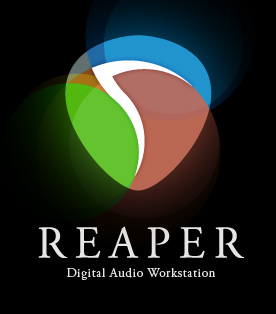
REAPER is a digital audio workstation and MIDI sequencer application created by Cockos. The current version is available for Microsoft Windows, macOS, and Linux. REAPER acts as a host to most industry-standard plug-in formats and can import all commonly used media formats, including video. REAPER and its included plug-ins are available in 32-bit and 64-bit format.

LV2 is a set of royalty-free open standards for music production plug-ins and matching host applications. It includes support for the synthesis and processing of digital audio and CV, events such as MIDI and OSC, and provides a free alternative to audio plug-in standards such as Virtual Studio Technology (VST) and Audio Units (AU).
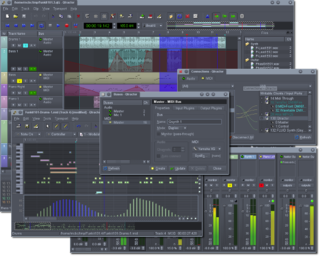
Qtractor is a hard disk recorder and digital audio workstation application for Linux. Qtractor is written in C++ and is based on the Qt framework. Its author is Rui Nuno Capela, who is also responsible for the Qjackctl, Qsynth and Qsampler line of Linux audio software. Qtractor's intention was to provide digital audio workstation software simple enough for the average home user, and yet powerful enough for the professional user.
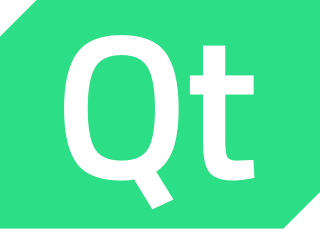
Qt Creator is a cross-platform C++, JavaScript, Python and QML integrated development environment (IDE) which simplifies GUI application development. It is part of the SDK for the Qt GUI application development framework and uses the Qt API, which encapsulates host OS GUI function calls. It includes a visual debugger and an integrated WYSIWYG GUI layout and forms designer. The editor has features such as syntax highlighting and autocompletion. Qt Creator uses the C++ compiler from the GNU Compiler Collection on Linux. On Windows it can use MinGW or MSVC with the default install and can also use Microsoft Console Debugger when compiled from source code. Clang is also supported.
Dart is a programming language designed by Lars Bak and Kasper Lund and developed by Google. It can be used to develop web and mobile apps as well as server and desktop applications.

Mono is a free and open-source .NET Framework-compatible software framework. Originally by Ximian, it was later acquired by Novell, and is now being led by Xamarin, a subsidiary of Microsoft and the .NET Foundation. Mono can be run on many software systems such as Linux.

Magnus Choir is a commercial, proprietary music software synthesizer, for the Microsoft Windows and macOS operating systems, written by Daniel Laiseca and developed by Syntheway Virtual Musical Instruments. The first version was released in 2005.
libGDX is a free and open-source game-development application framework written in the Java programming language with some C and C++ components for performance dependent code. It allows for the development of desktop and mobile games by using the same code base. It is cross-platform, supporting Windows, Linux, macOS, Android, iOS, BlackBerry and web browsers with WebGL support.
NativeScript is an open-source framework to develop mobile apps on the iOS and Android platforms. It was originally conceived and developed by Progress. At the end of 2019 responsibility for the NativeScript project was taken over by long-time Progress partner, nStudio. In December 2020 nStudio also oversaw the induction of NativeScript into OpenJS Foundation as an Incubating Project. NativeScript apps are built using JavaScript, or by using any programming language that transpiles to JavaScript, such as TypeScript. NativeScript supports the Angular and Vue JavaScript frameworks. Mobile applications built with NativeScript result in fully native apps, which use the same APIs as if they were developed in Xcode or Android Studio. Additionally, software developers can re-purpose third-party libraries from CocoaPods, Maven, and npm.js in their mobile applications without the need for wrappers.
